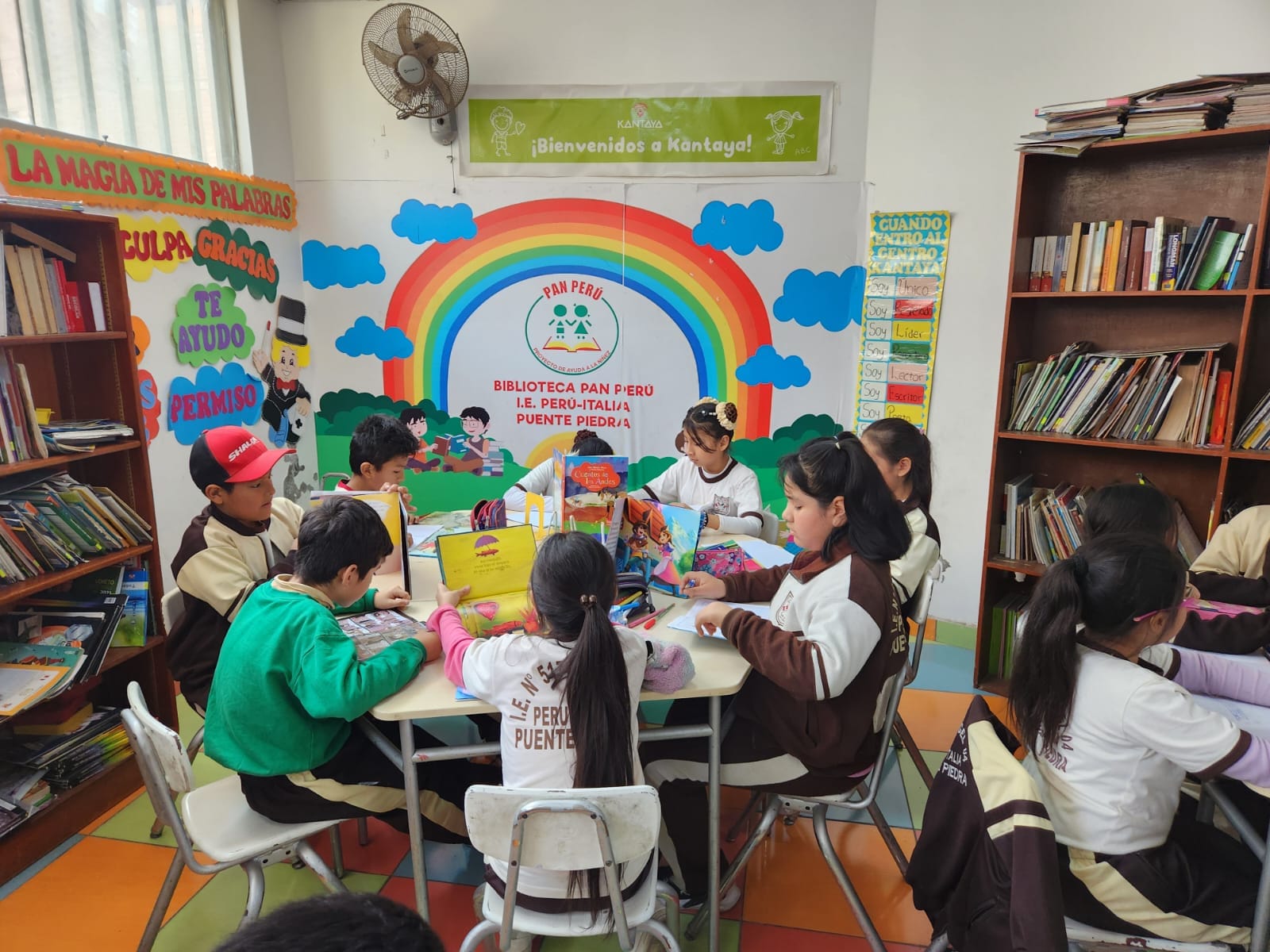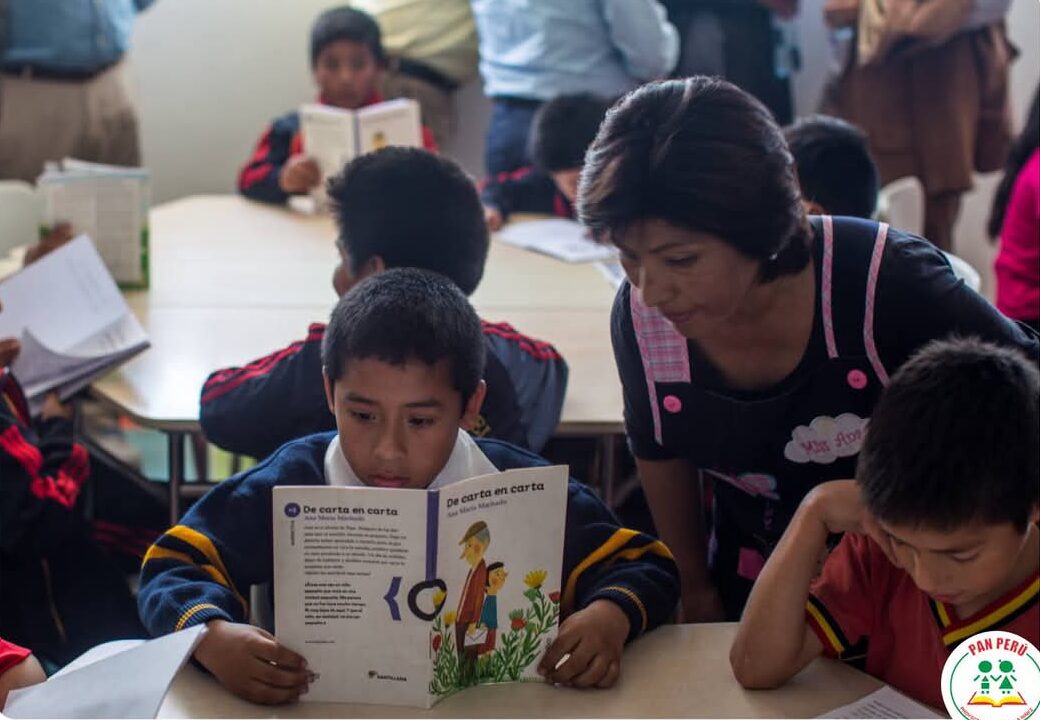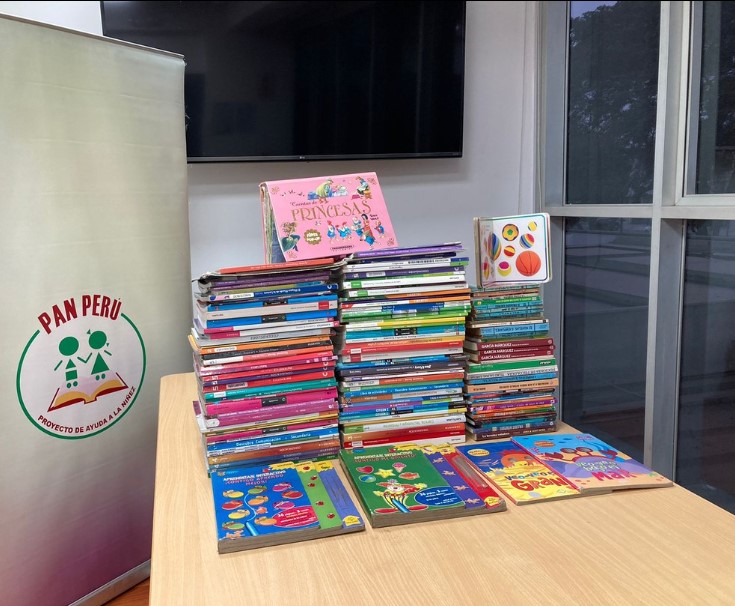PAN: The NGO That Cultivates a Love for Reading in Peruvian Children
The organization has built and implemented 10 libraries across the country, donating over 40,000 books to date and benefiting more than 10,000 children


In Peru’s poorest areas, where access to educational resources is limited and illiteracy affects five out of every 100 Peruvians over the age of 15—according to the 2023 National Household Survey—reading is a powerful yet underutilized tool. Driven to reduce this inequality, PAN created welcoming spaces filled with books with one singular goal: to enable children and young people to experience a special connection with literature.
Reading, especially during the school years, is essential for the holistic development of children and adolescents. However, libraries are scarce in Peru: there is only one for every 34,000 inhabitants, and “the national average reading rate doesn’t even reach one book per year,” says Diego Blancas, PAN’s Executive Director.
Most public schools lack libraries and even basic amenities. In early 2024, just before the start of the school year, the Ministry of Education reported that more than 50% of schools in Lima were not fit to welcome students. Despite this recurring challenge, PAN has been bringing books and hope to the neediest places since 2006.

Implementation with Thousands of Books
In 2004, Julia Ardiles founded PAN in Pampas Grande, a remote district in the Áncash region, with the firm goal of offering comprehensive education to children in Peru’s most impoverished areas. An engineering graduate from the National University of San Marcos, Julia always harbored a deep love for books. During her studies, she faced the harsh reality of not having enough money to buy the books she needed. Yet each book she acquired was deeply cherished, as she learned to appreciate the true value of knowledge and perseverance.


“A book can be the key to breaking the cycle of poverty. And as long as there is one person who believes in this, our mission will continue,” Ardiles emphasizes. She recalls that PAN’s first library was established at an altitude of 3,700 meters above sea level in Áncash. This library, equipped with over 4,000 books, benefits not only 350 children and adolescents but has transformed the entire community. For children, it is a magical space to explore new worlds and discover horizons. For parents, it represents the possibility of a better future for their children.
The NGO doesn’t stop at building libraries and supplying books. It also offers workshops for women, internet rooms, and learning spaces. Since 2017, PAN has introduced school greenhouses, teaching children how to plant and harvest their own food, connecting education with nutrition.
The second library was established in the same region, at Educational Institution 86705 in the village of San Juan. The third was implemented in the San Jerónimo settlement, also in Pampas Grande, and the fourth at I.E. 86053 in the village of Shancac.
PAN’s Impact in Numbers
The NGO’s valuable work has been remarkable, especially in communities where illiteracy was once prevalent. “Previously, less than 10% of children read for pleasure. Now, thanks to our libraries and workshops, over 40% voluntarily access books,” adds Diego.
With the success of its community libraries, PAN decided to replicate the model in various parts of Lima. In 2007, it implemented a library with 1,500 books at the San Camilo Home, a refuge for children with HIV. Later, in 2018, the project expanded to Pamplona Alta in San Juan de Miraflores.
Since then, PAN has transformed the lives of over 10,000 children through libraries and educational workshops. Each library houses between 3,000 and 5,000 books, audiovisual equipment, virtual libraries, and internet access.
In the short term, PAN has ambitious goals: to build two new libraries per year and create a network of reading communities, totaling 12 libraries by the end of 2024.


Do You Like PAN’s Work?
PAN needs support to continue its mission. Currently, it is seeking volunteers and donations, especially for:
- Books
- Computers
- Tables and chairs
Social Media and More Information


